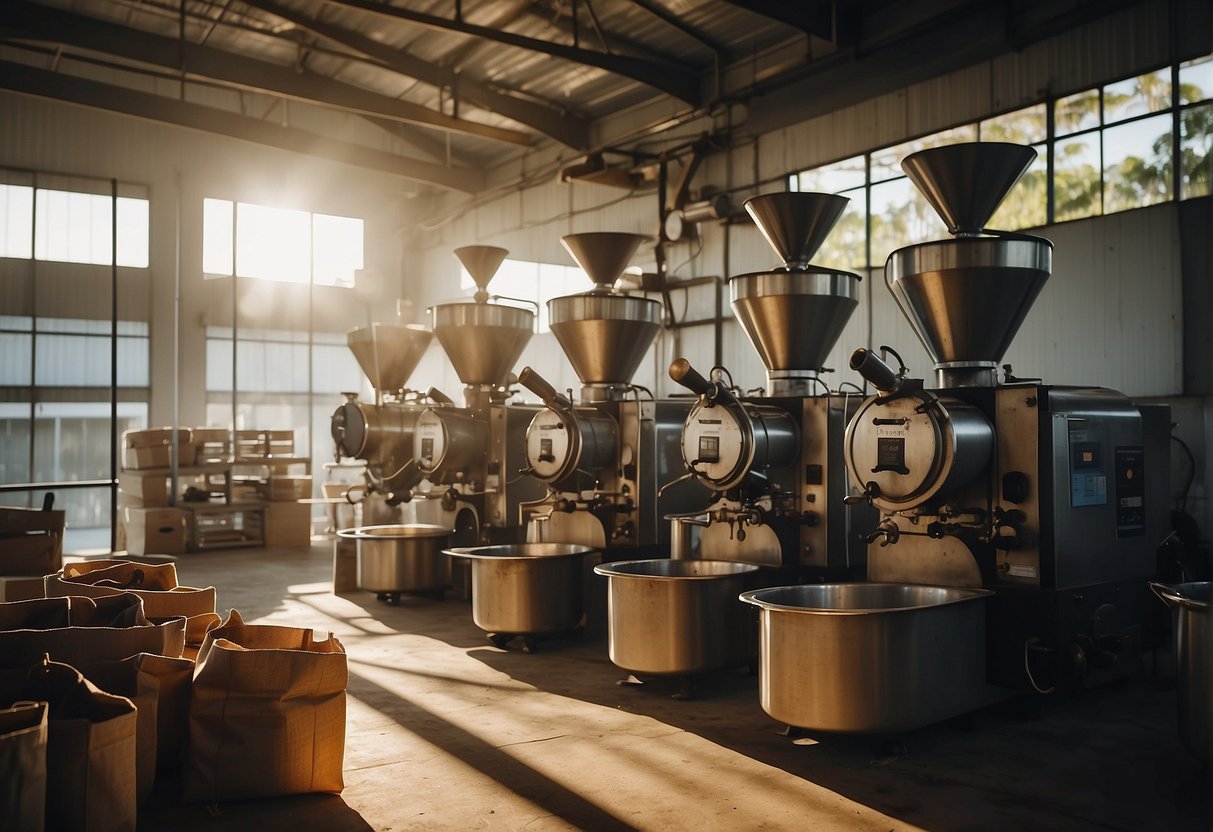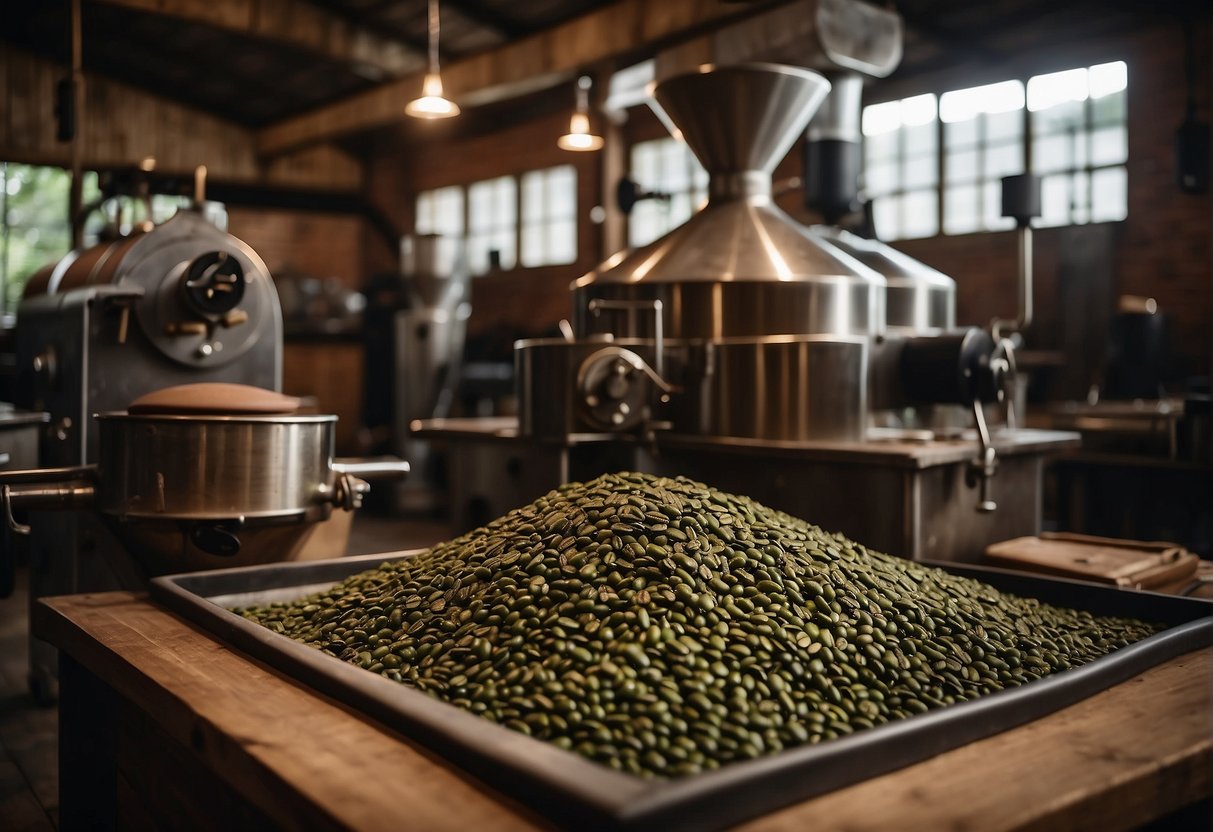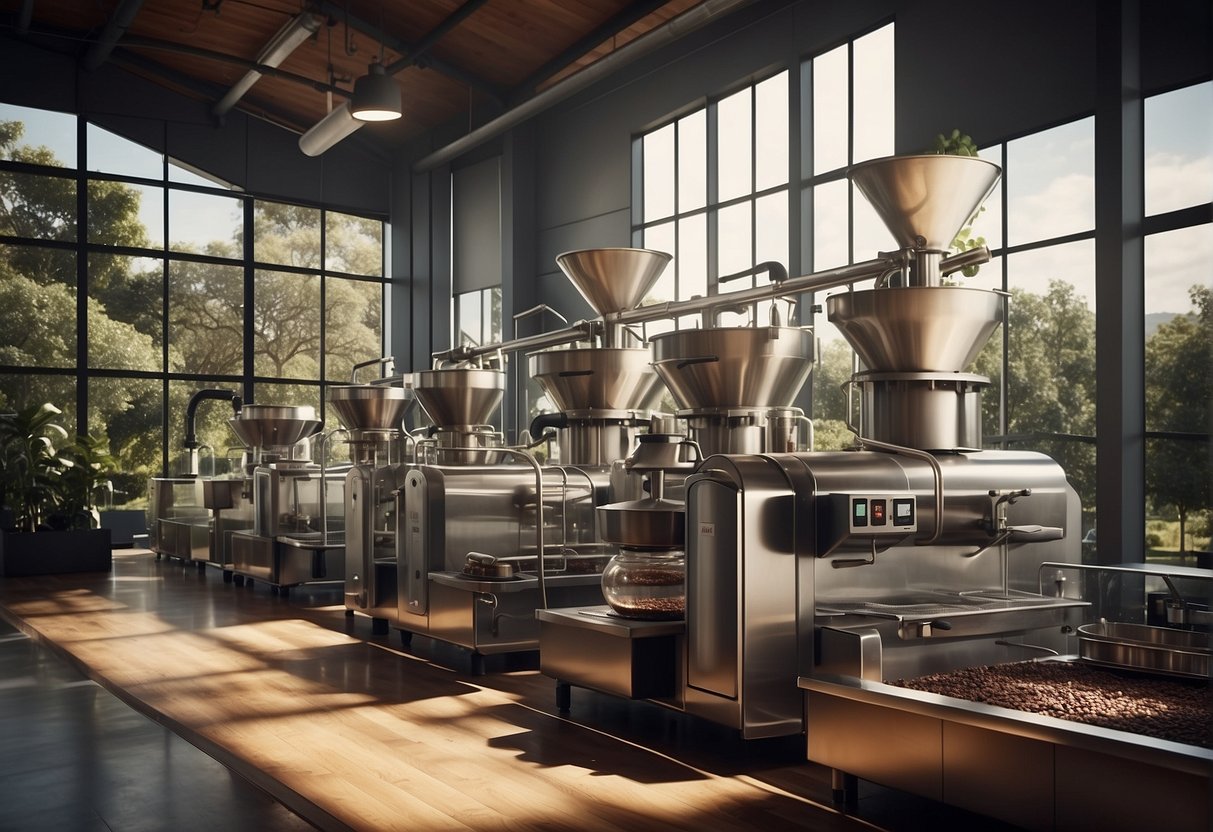Queensland, with its vibrant culture and diverse landscapes, is also home to a burgeoning coffee scene that reflects the state’s passion for quality and sustainability. In cities such as Brisbane and Cairns, coffee enthusiasts and professionals are dedicated to sourcing, roasting, and serving exceptional coffee. Renowned for their meticulous approach, Queensland coffee roasters strive to deliver a cup that not only tantalizes the taste buds but also tells a story of its origin and craftsmanship.

In the heart of Brisbane, specialty coffee micro-roasters cultivate a rich coffee culture by engaging in practices like cupping—a method used to evaluate coffee aroma and flavor profiles. They ensure each roast highlights the bean’s unique characteristics. Meanwhile, in Cairns, roasters operate with a vision to harmonize their love for coffee with community well-being and environmental stewardship. It’s not merely about creating a quality product; it’s about the impact and experience that a finely roasted bean can bring to the collective coffee experience in Queensland.
History of Coffee Roasting in Queensland

The tapestry of Queensland’s coffee culture is rich with history, marked by early success and a renaissance in specialty coffee. The region’s advancement in the art of coffee roasting charts a course from 19th-century accolades to modern sustainability and community-focused endeavours.
Pioneers of Queensland Roasting
The origins of coffee roasting in Queensland can be traced back to the late 19th century. Pioneering farmers in the Buderim region began growing coffee, and by 1899, Buderim-grown coffee was awarded a gold medal diploma in London’s Earl’s Court Exhibition. This acclaim signifies the early international recognition of Queensland’s coffee roasting talents, showcasing their capacity to produce exceptional coffee on a global stage.
Growth of Specialty Coffee
As Queensland’s roasting techniques evolved, the move towards specialty coffee became clear. From these early roots, local roasters now emphasize sustainability and community engagement, reflecting a global trend towards conscious consumption. Combining traditional methods with innovative practices, Queensland roasters like those in Mareeba have cemented themselves as integral parts of the community, often sourcing beans ethically and investing in environmentally-friendly roasting technologies. As espresso became the hallmark of coffee culture, Queensland’s roasters adapted, crafting roasts tailored to the espresso’s flavor profile central to modern palates. This focus on quality, local involvement, and sustainable practices marks the current state of the industry and sets a pattern for its future.
The Roasting Process
https://www.youtube.com/watch?v=N6BJVM5tvnw&embed=true
Roasting transforms green coffee beans into aromatic, flavorful roasted coffee products. The process is both an art and a science, requiring precise timing and temperature control to achieve the desired quality.
Understanding Coffee Beans
Coffee beans start as green seeds inside a bright red cherry. Before roasting, they undergo a drying process where their moisture content is reduced to an optimal level. The quality of green beans determines the flavor potential of the coffee, requiring a roaster to scrutinize the beans for defects and to understand the beans’ origin and characteristics.
Roasting Techniques
There are various roasting techniques, including drum and hot air methods. Drum roasting involves rotating the beans in a heated drum, while hot air roasting blows hot air through the beans. Both techniques aim to achieve a uniform roast and must be monitored closely to control the roast profile. The roasting process typically passes through several stages, like drying, first crack, and development, influencing the beans’ final taste.
Quality and Cupping Standards
After roasting, coffee is often subjected to cupping, a standardized method of tasting and evaluating the aroma and flavor profile of coffee. Cupping allows roasters to assess the quality of their product, ensuring consistency and excellence. They evaluate attributes such as body, acidity, sweetness, and overall balance to ensure that the roasted coffee meets the highest standards.
Ethical and Sustainable Practices

Queensland’s coffee roasters are making significant strides in promoting ethical sourcing and sustainable practices within the industry. Their efforts not only contribute to the well-being of local farmers but also emphasize eco-friendly roasting techniques and a commitment to various investments in sustainability that protect the environment.
Supporting Local Farmers
Coffee roasters in Queensland are actively involved in fostering strong relationships with local farmers, ensuring that they obtain their coffee beans through ethical channels. This involves fair business practices that provide farmers with a livable wage and support the regional economy. Wolff Coffee Roasters, for example, is known for sourcing high-quality beans while contributing positively to the livelihoods of these farmers.
Eco-Friendly Roasting Methods
Sustainability in coffee roasting is achieved through the use of energy-efficient equipment and the implementation of processes that reduce emissions. Many roasters opt for roasting methods that minimize their carbon footprint, contributing to a healthier environment. Articles emphasize innovations among Brisbane’s coffee roasters in adopting green practices that align with this goal.
Investments in Sustainability
Investments in sustainability extend beyond the roasting process and include partnerships with organizations like the Reef Restoration Foundation to support ecological projects. These coffee companies often participate in programs geared toward organic certification, reef restoration, and initiatives to save natural resources, ensuring that their business model is not only profitable but also protective of the planet.
Queensland’s Coffee Roaster Scene
The coffee culture in Queensland has blossomed remarkably, with roasters in Brisbane, Cairns, and Burleigh Heads leading the charge in quality and innovation.
Brisbane’s Roaster Hub
Brisbane boasts a vibrant coffee scene where roasters are dedicated to perfecting their craft. Wolff Coffee Roasters, for example, was founded in 2010 and has become a hallmark of Brisbane’s dedication to coffee, providing education alongside their carefully roasted beans. For those keen on lighter roasts, Light Coffee Co. in East Brisbane is known for its approach to lightly roasted coffee, drawing aficionados of filter coffee to its minimalist space.
Cairns and Northern Roasters
Moving north to Cairns, the coffee roasting scene might be smaller yet is equally passionate. Enthusiasts prioritize local production and the freshest beans. Small batch operations here cater to a community that values artisanal qualities and a farm-to-cup experience.
The Specialty of Burleigh Heads
Burleigh Heads, on the Gold Coast, has a special charm where local roasters like Blackboard Coffee Roasters make a name for themselves with a dedication to quality and ethical sourcing. They exemplify the significance placed on responsibly produced java crafted with expertise, ensuring a distinctive and delightful cup every time.
From Bean to Cup: The Supply Chain
The journey of coffee from its origins to the final brew is a nuanced process that encompasses meticulous sourcing, blending, and strategic partnerships. Queensland’s coffee industry, particularly in Mareeba, is a testament to this carefully orchestrated supply chain.
Local Sourcing of Green Beans
In Queensland, particularly areas like Mareeba, local roasters place great emphasis on the local sourcing of green beans. This allows for closer relationships with growers and a better understanding of the provenance and quality of the product. Each coffee bean reflects the unique climate and soil conditions of the region, giving local roasters an edge in producing distinctive coffee profiles.
Single Origins and Blends
Single origin coffees, which come from one specific location, are highly sought after for their unique flavor characteristics. Queensland roasters often curate a selection of single origin beans to offer a diverse taste experience to consumers. Conversely, blends combine beans from multiple origins, crafted to create a balanced cup with layers of flavor, and are a popular choice for a consistent profile.
The Role of Wholesale Partners
Wholesale partners are crucial in the coffee supply chain, acting as a bridge between roasters and the market. They provide a channel for Queensland coffee, including beans from Mareeba, helping roasters reach a wider audience. By working with wholesale partners, roasters can focus on their craft while ensuring that their coffee is distributed effectively and efficiently.
Engaging with the Coffee Community
Queensland’s coffee scene is vibrant, with numerous opportunities for enthusiasts and professionals to engage and deepen their coffee knowledge. From events designed to showcase roasting skills to educational workshops, the community comes together to celebrate everything coffee.
Events and Cupping Sessions
Enthusiasts often gather at events like The Best Coffee Roasters in Brisbane and Queensland, where cupping sessions allow participants to taste and discern the nuances of different brews. These sessions are not only a sensorial delight but also serve as a forum for roasters to receive feedback and for the community to discuss preferences and trends.
Education for Home Baristas and Staff
Education is a core component of engaging with the coffee community. Structured training for home baristas and staff is offered by entities like Open Coffee Brisbane, emphasizing the importance of technique and knowledge in crafting the perfect cup. These sessions empower individuals with the confidence to explore coffee’s vast territory.
Fostering Relationships with Customers
Building strong connections with customers is key to any coffee enterprise’s success. Establishing a regular clientele comes from consistently providing high-quality coffee and warm, informed service. Operations like The Coffee Commune prioritize the aspect of community, bridging the gap between a good cup of coffee and good people.
